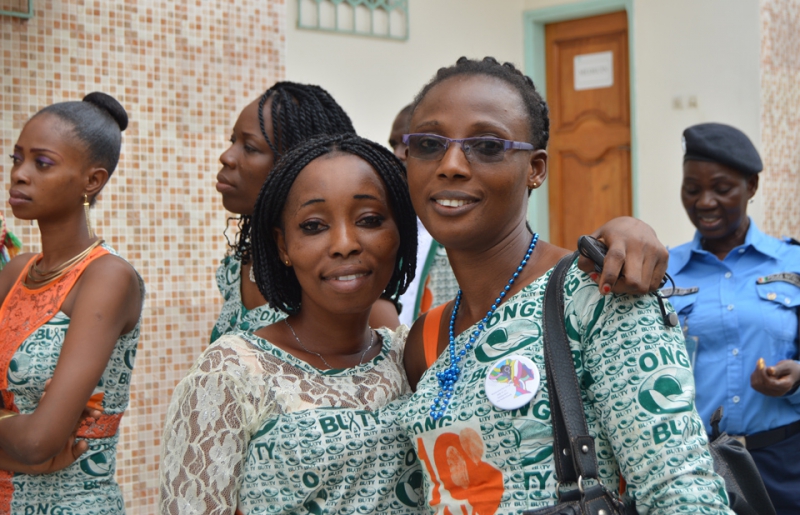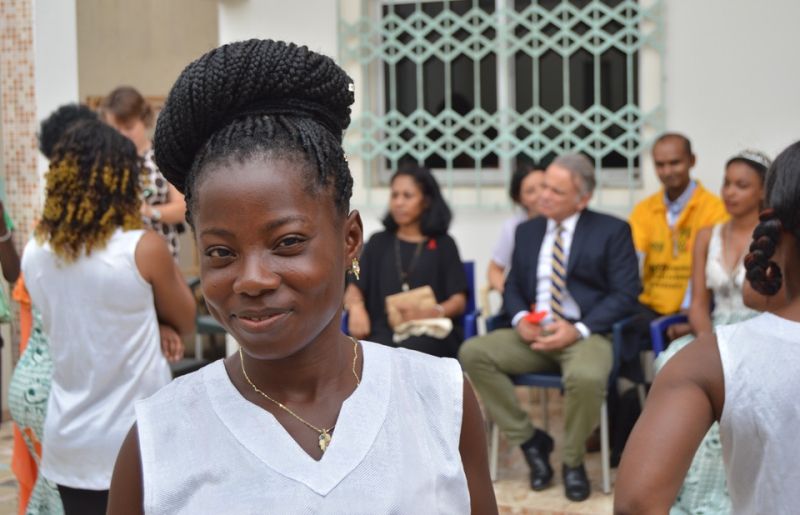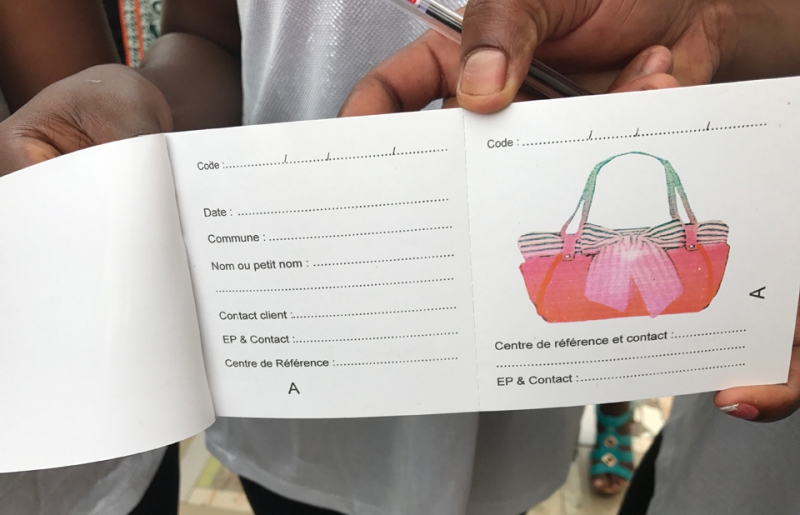Singing “akouaba” (welcome), a group of young women crowded around Josiane Téty, the director of Bléty, a Côte d’Ivoire organization led by sex workers, as she arrived.
Located in Yopougon, a suburb of Abidjan, Ms Téty explained that in the centre one of the first things they do is give each other nicknames. Names such as Joy, Hope or Chance, because women, she said, often need a confidence boost and a sense of a new beginning.
“We take the time here to work on self-esteem, so that all the girls believe in themselves,” she said.

Most of the women at Bléty are current or former sex workers who carry out peer outreach, ranging from HIV awareness-raising and education about HIV prevention to promoting sex workers’ rights and continuing education.
“We seek to give young women opportunities and alternatives so that they are less vulnerable,” Ms Téty said. Pointing towards a young woman, she said that Happiness had started beginner accounting classes.
Ms Téty and other sex workers founded Bléty in 2007 because they realized that they had little information regarding their health or their rights and hated feeling stigmatized.
“Getting an HIV test doesn’t mean that you are living with HIV, but that is how we were perceived when we were seen leaving a clinic,” she said.
They set out to correct that and have implanted themselves in the community.
Marie-Louise Sery came to Abidjan to work following her parents’ death. She didn’t have much schooling and finding a job was difficult, so she started sex work. The 30-year-old, wearing braided pigtails, admitted being completely clueless about the risks she took.

“Bléty got me out of that situation,” Ms Sery said. This past year she became one of Bléty's peer educators.
Most of the time, she said, peer educators target bustling street corners to talk to sex workers, of which there are estimated to be more than 9000 in the country. Aside from handing out condoms, they also conduct rapid HIV tests and hand out cards with the contact details of Bléty’s various focal points, who can be reached day and night in the event of an emergency.

“My work involves giving a lot of support and hand-holding,” Ms Sery said.
Sex work is not illegal in Côte d’Ivoire, but the laws on it are vague. As a result, there is abuse and sex workers are vulnerable to violence. “We really stress to our friends out there that because they’re sex workers, it doesn’t mean people can take advantage of them,” Ms Téty said. If they have been abused they can call a Bléty peer educator and are accompanied to the police station or to the hospital.
Ms Téty said a recent victory had been to negotiate with doctors and health-care providers to provide a medical certificate free of charge, instead of for a US$ 35 fee. The law in the country requires a medical certificate in order to pursue a criminal case.
In its 10-year existence, Bléty has fended off pressure from the police and residents to change their attitudes towards sex work. Bléty has educated the police as well as sex workers in order to break the climate of mistrust between them.
“We have established good relationships with uniformed police, but there is a high turnover, so it can get frustrating to start all over again,” Ms Téty said.
Overall, she remains optimistic. Testing for HIV and sexually transmitted infections among sex workers is up, lawyers have stepped in to give legal advice and she sees her centre growing further.





